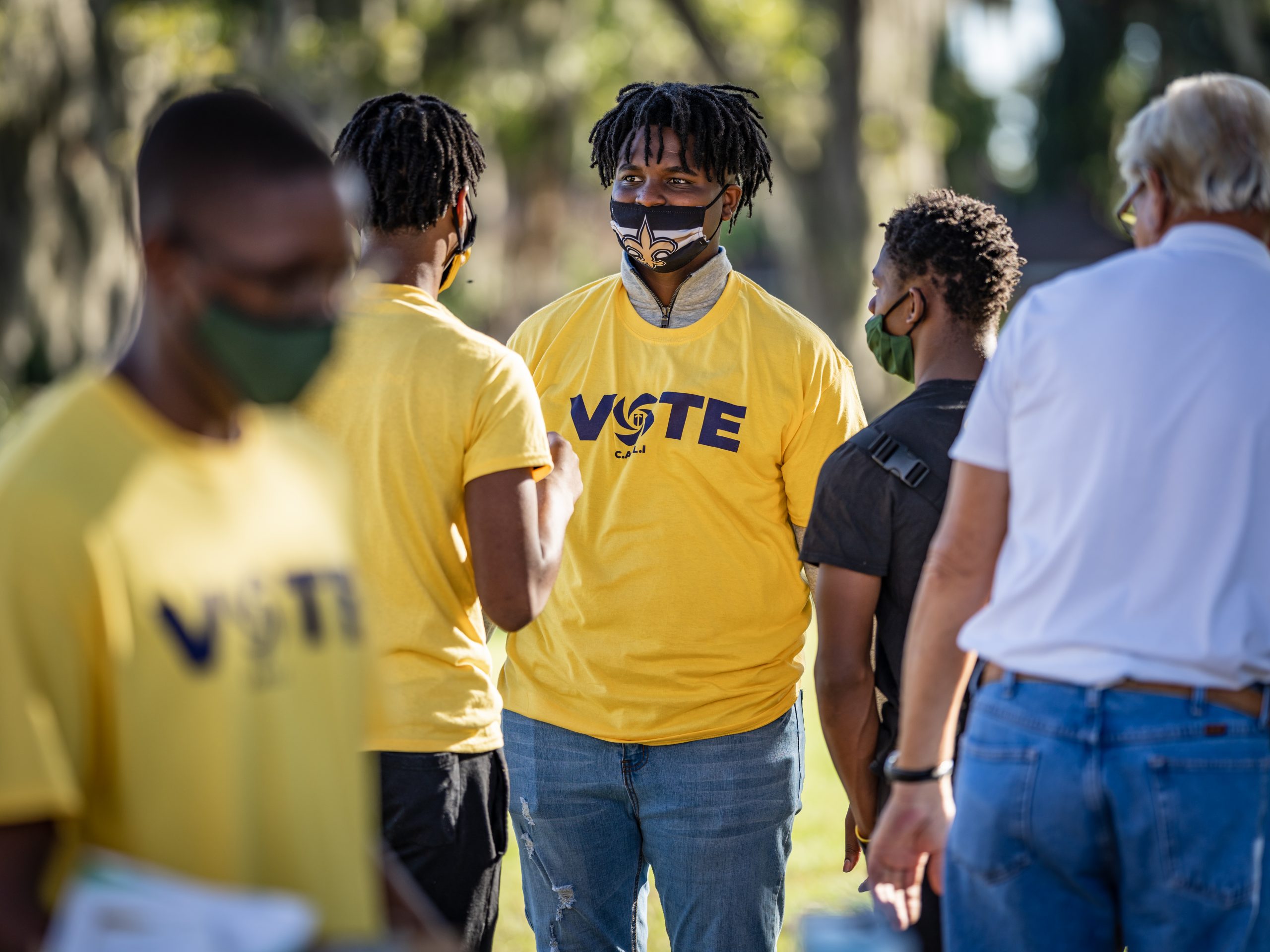Whither The Multiracial GOP?

I have nothing to add to the conversation about Major League Baseball’s decision to move the All-Star Game from Atlanta to Denver in response to a bill recently passed by the Georgia legislature and signed into law by the state’s governor, Brian Kemp. The reasoning of pro baseball’s commissioner (whom I refuse to name, in keeping with a practice generally reserved for school shooters and other terrorists) is incoherent. I expect this sort of thing to continue happening, just as I expect to continue to be one of the roughly 50 living non-septuagenarians who watches baseball on television.
A question I find more interesting than these meta-debates is the legislation itself. What it actually enjoins (having the same piece of paper you need to buy a six-pack or board an airplane) and forbids (handing out beverages to voters) matters less than the very real strategy behind it.
There is no point in dissembling. Republicans in Georgia are responding to the loss of two Senate seats and to the results of the last presidential election by trying to undo the electoral advantages conferred upon their opponents by universal mail-in voting and other changes. Specifically, they are hoping to dismantle the remarkably efficient turnout machine engineered by Stacey Abrams, whom too many of them dismissed as a hapless kook after she insisted that her own defeat in the 2018 gubernatorial election was a result of widespread irregularities.
If 2020 showed us anything, it was that Abrams was not wrong in insisting that Democrats were capable of winning statewide office in Georgia if conditions on the ground were altered. In response to this, Republicans have decided to live up to their established public image by passing legislation that (whatever its proponents say to the contrary) is straightforwardly meant to suppress the African American electorate, which was ultimately responsible for their losses in the fall.
Whether it will succeed is of less importance than what it tells us about the nature and scope of Republican ambitions. Here I should say that I have no naive opinions about the value of the franchise or the metaphysical dignity of participating in what is fondly described as “our democratic process.” But it does seem odd to me that after months of talk about Trump’s extraordinary gains among black and Hispanic voters, Republicans are effectively dismissing their own advice here.
It is one thing to say that the future of the GOP is a “multiethnic, multiracial, working-class party.” It is another to act as if you expected it to happen, and another still to behave in such a way that suggests you wish it to be so. As far as I can tell most Republican elected officials in Georgia haven’t got the faintest interest in attracting African American voters who are inclined to agree with them about social issues ranging from abortion to same-sex marriage to gun rights. Rather than try to compete with the new Abrams machine by reaching out to marginalized communities (especially black voters in rural areas) and building the sorts of broadly diverse coalitions that statewide victories require when voter turnout is high, Georgia Republicans would rather lose black votes on their own familiar terms.
Which is why I do not blame the vast majority of black voters, in Georgia and elsewhere, for refusing to take the GOP at its word. “We would prefer if you sat out Election Day because you forgot to change your driver’s license or you needed to work and had better things to do with your life than fill out some online forms, but if you do end up voting somehow, feel free to consider this coalition that intends to make zero ideological concessions to your priorities!” is not a promising overture.
Republicans might think of themselves as a working-class party, but it is as the party of white America, and white men in particular, that they are understood by most of the country (including, I think, at least implicitly, most GOP voters). No amount of speaking slots for football legends at the RNC or (canceled) CPAC engagements for Soundcloud rappers is going to alter this perception. Ditto buzzwords and memos ignored by party operatives and the grassroots. (I wonder how many voters in Georgia of any race had even heard of the Platinum Plan, for example).
What a conservative machine politics that courted black and other minority voters would look like is a difficult question. It is also one with which you might expect Republicans to be more concerned than, say, the good name of Derek Chauvin, given all the rhetoric we have been accustomed to hearing.
Matthew Walther is editor of The Lamp magazine and a contributing editor at The American Conservative.
Comments